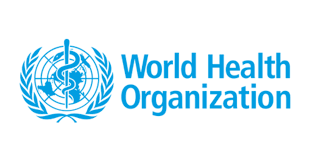The World Health Organisation (WHO) has called for urgent measures to curb the growing medicalisation of Female Genital Mutilation (FGM) and urged greater engagement of health workers in efforts to end the practice.
In a statement issued on Monday, the organisation highlighted the concern in its newly published guideline dated April 25.
Correspondence reports that while the health sector plays a crucial role in preventing FGM and supporting survivors, evidence shows that the practice is increasingly being carried out by health workers.
WHO noted that in 2020 alone, approximately 52 million girls and women underwent FGM at the hands of medical professionals.
The new guideline, “The Prevention of Female Genital Mutilation and Clinical Management of Complications,” provides recommendations aimed at preventing FGM and offering evidence-based care for survivors. It addresses actions needed by the health sector, governments, and affected communities.
Dr. Pascale Allotey, WHO’s Director for Sexual and Reproductive Health and Research, described FGM as a severe violation of girls’ rights that critically endangers their health.
“The health sector must be an agent for change, not a perpetrator of this harmful practice,” Allotey said, stressing that practitioners must also deliver high-quality care to those affected.
FGM, typically performed on young girls before puberty, involves procedures that remove or injure parts of the female genitalia for non-medical reasons. Allotey emphasized that, regardless of who carries out the procedure, it causes significant harm. She added that when performed by health workers, it could result in more severe injuries and inadvertently legitimise the practice.
To address this, the new WHO guideline recommends that professional codes of conduct explicitly prohibit health workers from performing FGM.
Ms. Christina Pallitto, a Scientist at WHO, stated that health workers can act as influential opinion leaders, helping to shift attitudes and practices around FGM.
“Engaging doctors, nurses, and midwives must be a key element in FGM prevention efforts,” she said, noting that community education, effective laws, and policies must complement clinical measures.
She added that community awareness activities, especially those involving men and boys, can significantly support girls’ rights and promote attitudinal change.
Pallitto also stressed the importance of providing a range of health services to survivors, including mental health care, obstetric risk management, and, where needed, surgical repairs.
She pointed to successful examples where strong political commitment and community engagement led to significant reductions in FGM prevalence among teenagers in countries like Burkina Faso, Sierra Leone, and Ethiopia.
According to WHO, the likelihood of a girl undergoing FGM has decreased threefold since 1990, but the practice remains widespread in about 30 countries, putting an estimated four million girls at risk each year.
(NAN)


